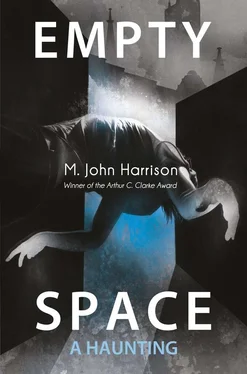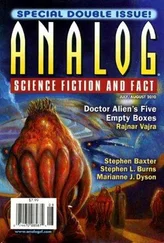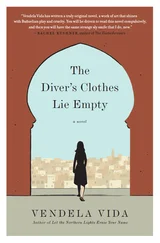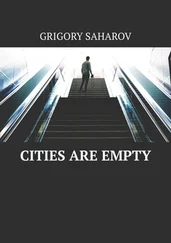But Anna — who had feared all along things would go in this direction once Marnie lost her patience — remembered Michael Kearney, trembling in her arms in his paralysis of anxiety, and could only repeat, ‘I don’t want to know things like that about myself.’ Helen Alpert identified this, perhaps correctly, as a defensive stubbornness; baffled, they stared at one another in silence again until Anna shrugged, looked at her watch, and said: ‘I think my time’s up.’
‘Is there anything else?’ the doctor said.
‘My cat is bringing home the internal organs of exotic animals.’
‘I meant, really, if there was anything else you remembered about the dream.’
After Anna had gone, the doctor leaned back in her chair and rubbed her eyes tiredly.
Helen Alpert was a tall woman, given to skinny jeans and soft leather coats, whose career had begun in the psychology of chronic pain; veered during her troubled second marriage into PTSD and trauma management; and finally come to rest in private consulting rooms by the Thames in Chiswick, where she facilitated the inner lives of mid-range production executives from the surrounding BBC enclaves. Perhaps ten years younger than Anna, she had made her home on the opposite side of the river in one of the quiet streets around Kew Green. Mornings, she jogged by the river. At weekends she wandered the Gardens or drove her temperamental first-generation Citroen XM to a cottage in East Anglia, where she trudged up and down the shingle beaches in the rain and ate pea mousse with Parma ham & shallot dressing, followed by roast breast & confit leg of squab on puy lentils with parmentier potatoes and jus, at the local Michelin-starred pub conversion. Despite or perhaps because of this regime, she remained single. She had been treating Anna Waterman for three years. It was slow going. They had layered up this peculiar dream of Anna’s until it was a rich and satisfying fiction, but not one that offered an easy reading of itself; and they had never seemed quite suited to one another.
Now, knowing Anna to be too young to have worn 1960s Givenchy, the doctor assumed the garment to be a symbol of the parent, entering the words, ‘The unthought known?’ into Anna’s case file and emphasising them heavily.
Then she leafed back through the file, parts of which were easier to understand than others.
Born Anne-Marie Selve in 1976, to a provincial couple already in middle age, Anna had formed herself early. Academically focused at eight, she had been obsessive by fourteen. It was a familar story. Arriving at Girton a year ahead of her cohort she allowed a further year to pass before succumbing to anorexia. Self-harm and her first suicide attempt followed. By then, the parents — never much more than pleasantly surprised to find themselves parents in the first place — were too old to offer emotional help; in addition there remained, according to psychiatric reports, some unidentified tension between father and daughter. Girton patched Anna together. For a time she was, as she put it, everyone’s favourite suicide. ‘They knocked on my door if they thought things were too quiet.’ But soon the Selves’ place in her life was taken by a visiting professor of mathematical physics. This man, Michael Kearney, uncommunicative, narcissistic and easily depressed, turned out to have his own problems. They were married fast and divorced even faster; yet, sustained perhaps by its fiercely mutual structures of manipulation, the relationship proved more durable than either of them believed, lurching along in its disordered way until Kearney ended it on the eve of the Millennium by walking into the Atlantic just north of Scituate, Massachusetts.
At this remove, the mathematician became unidentifiable. He had no family Helen Alpert could trace; while Anna claimed to have ‘forgotten everything’, and wouldn’t be certain about his age or even the colour of his eyes. When she could be persuaded to speak about Kearney, he was transformed into careful fiction. Vague one day, meaninglessly particular the next, Anna’s revision of Kearney presented him as a gap in her life even as he had filled it.
Publicly there was a little more. He had written, probably as a joke, a pamphlet on randomness and the Tarot. Some topological speculations — stimulated by exchanges with the reclusive mathematician Grigori Perelman — had been published a year or two before his death, to cautious peer approval. Otherwise Michael Kearney’s contribution to science lay in an unfinished quantum computing project, most of the work on which had been done by an unassuming experimental physicist called Brian Tate. Tate — newly divorced, unequal even to the brief publicity surrounding Kearney’s suicide, and wrong-footed by a minor funding scandal involving the venture capital firm MVC-Kaplan — went down with the ship. His results proved unrepeatable. With his collaborator dead, and his claim to have coaxed massive parallel processing from a train of cheaply modified desktop PCs dismissed as junk science, he faded from view in a month. All this was a matter of record.
By that time, Anna’s parents were plaques on a chapel wall somewhere in East Cheshire. She had no friends. The Millennium was over, the fireworks had gone out. Everyone else seemed to know what they wanted. Back in London, she bought a self-help manual and taught herself to eat again. She entrapped Tim Waterman and, still confused but with a growing sense of self-preservation, set about reducing the chaos in her life. Waterman was a kind and successful man whose work often took him abroad. The first time he went away, Anna found she could cook. She put on weight, toyed with the Women’s Institute and, discovering a gift for flowers, the Prettiest Village competition. Tim, who had known her briefly during the Michael Kearney era, seemed calmly amused by it all. She brought up their daughter with care, the best humour she could manage, and a real sense of the worth of that.
But everything, Helen Alpert reminded herself as she put away the file and locked the consulting room door behind her for the day, is language.
Pushing her old car west along the Thames through heavy evening traffic, she recalled Anna’s description of ‘fucking in a blind panic’ with her first husband. ‘In fact I always quite liked sex to be that way,’ Anna had added. ‘It made it seem more central somehow, a means of saying something urgent about yourself. The problem was always what could happen next.’ Then, when Helen Alpert raised her eyebrows at this, Anna laughed suddenly and advised: ‘Never do anything unless you’re lost or on fire, Doctor. Otherwise how will you remember it?’ Balked by the Mortlake roundabout, gazing vaguely at a thick red sunset behind layered fringes of trees, Dr Alpert wondered how she could make sense of this except as bravado. Anna Waterman had reinvented herself with the century: now she was discovering that Anna Selve remained the disordered substrate beneath it all. Whatever had drawn her to Michael Kearney underlay everything else she had made.
In her repeating dream, in her fear of neurological disease, in her increasing sense of the instability of her life — in her denial of all of that — her original disorder had found its voice again.
Anna, unaware of these judgements, took home two bottles of Fleurie and a tub of pistachio ice cream then telephoned Marnie and conducted a short but satisfying row; after which they agreed to more broadly respect one another’s feelings and Anna listened to news of Marnie’s ex-boyfriend’s new job. Her plan for the rest of the evening had been to turn on her fifty-inch Sony and eat all the ice cream while watching an ageing wildlife presenter gambol in the brackish waters of the North Sea with the half-dozen mouldy-looking grey seals left in the Shetland Islands; but, four of the animals having the previous week contracted human norovirus, the spectacle was cancelled. Anna wandered about. After her exchange with Marnie the house seemed hot and airless. She took a shower. She stood looking out of the kitchen doorway with a glass of Fleurie in her hand. Called the cat. He didn’t come.
Читать дальше












